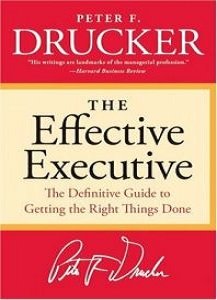The Problem
It’s one of the most common stories in sales. A sales rep starts with a company. He studies, learns, plans, practices, perseveres. After some years, be becomes an excellent producer. As a result of his achievements, he is made a manager. Or perhaps, in our industry, he decides to start his own firm. And soon nothing goes right. Time spent to interview, evaluate, and train new hires reduces his sales effectiveness. His new people produce poorly. When they do produce, they start to argue with him as to methods and strategies. He cannot motivate them beyond adequacy. Turnover is constant, further draining his personal productivity. Frustration sets in. An excellent and happy salesman has become a mediocre and unhappy manager.
“How do you ruin a good salesman?” goes the old joke. “Make him a manager!” is the sarcastic and frequently accurate answer.
Is this a common scenario in our business? You bet it is!
The Reason
In large part, this entire difficulty stems from a single root misunderstanding – the lack of realization that selling and managing require different sets of skills! To learn those skills necessary to become a good manager will take almost as much time, effort, and study as is needed to become a good recruiter. We all recognize the enormous investment to become truly skilled at “working a desk”; yet, how much time is invested in learning management skills? Especially in today’s economic climate, management skills must be maximized!
The Answer
The best way to become quickly knowledgeable about the practice of management is to undertake a study of those practices – and this is most easily achieved by purchasing, reading, underlining, and implementing the books that have proven to contain the requisite information.
While the field of “management books” is vast, the following are brief summaries of some of the best of them. These books are clear and concise. If a book should be out of print, Amazon probably has it used.
 The Effective Executive – Peter F. Drucker
The Effective Executive – Peter F. Drucker
And in the beginning there was Drucker.
It is easy to forget the pre-Drucker days, when managers everywhere echoed Henry Ford’s sentiment: “To ask who should be boss is like asking who should sing tenor in the quartet. Obviously, the man who can sing tenor!” There are those who were bosses and those who were subordinates, and only fate dictated who was who. And … then came Drucker.
Everything we now take for granted, from management by Objectives to Time Management to decision making with a modicum of logic to it, springs from Peter Drucker’s incredible mind. The title of John Tarrant’s fine book, Drucker: The Man Who Invented the Corporate Society, says it all. The Effective Executive is one of his best.
Want to accomplish more? “If one cannot increase the supply of a resource, “says Drucker, “one must increase its yield. Effectiveness is the one tool to make the resources of ability and knowledge yield more and better results.”
As a consultant, Drucker has met many effective executives – all different. “Some are eccentrics, others painfully correct conformists. Some are men of great charm and warmth; others have no more personality than a frozen mackerel. There are men who make decisions easily, and those who suffer agonies every time they have to move.” And then, “What all these effective executives have in common is the practices that make effective whatever they have and whatever they are And these practices are the same…”
For a riveting 174 pages that changed the world, Drucker explains and describes five practices of top managers and decision makers with examples from Alfred Sloan (developer of General Motors) Robert E. Lee, Abraham Lincoln, Andrew Carnegie, Franklin Roosevelt, and others. He ends with a memorable chapter on self-development. What are these five practices? Sorry. To state his conclusions would be to have you judge Drucker. One does not judge Drucker; one learns from him.
Can a person be a good manager without having read Peter Drucker? Of course. You can be a good major league pitcher without a fastball, too. But if you have a choice, why would you want to? You have a choice. Read Drucker. Learn from him. Start with The Effective Executive. History can’t be wrong.
 No-Nonsense Management – Richard S. Sloma
No-Nonsense Management – Richard S. Sloma
This masterful work is the book a best-seller ought to be – and never is.
Sloma is a former Division President of ITT, has served on the board of six major international corporations, and is an intelligent, straightforward writer and thinker who is not without his humorous side. (He dedicates his book to his wife “who has shown me over a quarter of a century that management by dictatorship definitely works.”)
Sloma subtitles this as “A General Manager’s Primer” and divides his 157 page book into 70 bottom-line principles. Talk about “back to basics.” A monthly reading of this book would benefit every manager alive!
Where the “social worker” school of management (Sloma’s description) whines about how “everyone is a winner, “ Sloma comes on with “it is easy to sympathize and empathize. The first and foremost social goal of business is to make a profit!”
For the search and placement firm owner concerned with what to do with marginal employees, Sloma minces no words. “Never try to salvage an individual. Remember, you are measured by “earnings per share,” not “converts per share.” His comments on management controls, accountability, and taking numbers are direct an irrefutable. “Your control will continually be tested … individuals can perform at their best only if they are regularly, formally, and objectively measured.”
Buy this book, read it, and re-read it frequently. A tough, profitable, well-written, intelligent book, and a contribution to your firm.
* * * *
To know the sales portion of your business – whether permanent, temp, or contract – it is obviously necessary to generate personal revenue. The ability to transfer those skills to others, develop and supervise those new and experienced people, and then to guide them through difficult economic times, however, requires a very different body of knowledge. Unless sufficient time and effort are made to accumulate that knowledge, frustration and failure await. These books contain the information you must have to grow your firm quickly, profitably, and well.
In Part 2, we will cover two more books that will significantly increase your management skills and your profits.
Main image source: Royalty-Free/Corbis
